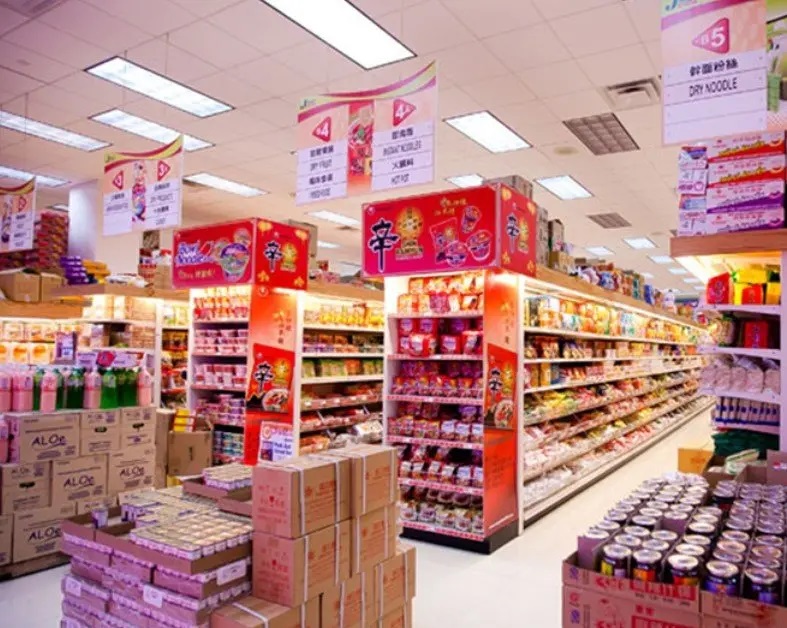By Nada Ling
China has a repeated history of food and drug safety issues due to a lack of real accountability under the Chinese Communist Party (CCP) rule. The horrible consequences inflicted on its citizens are well documented. This ugly problem emerged again in 2024 when it was found that state-owned trucks carrying fuels and chemicals were also used to transport cooking oils, without proper safeguards.
Given the proliferation of globalized trades, it is important to assess how polluted food and drugs in one region of the world may easily spread to another. One eerily example is already evident in that the West imports generic drugs manufactured in India and China, some of them are sub-standard and have caused consumer harm.
The imported food safety issue deserves a full investigation from government agencies. While a formal inspection is beyond the scope of this article, nevertheless, it would be informative to do an observational report from nearby supermarkets (see Figs 1-5 below). This article is not meant to be a scientific study, but first-hand documentation can be a good initial step to raise awareness for consumers. Hopefully it leads to better food safety regulations.
Nine total trips were made to distinct Chinese, Korean and American supermarkets in Northeast USA. Given the recent tainted cooking oil scandal in China, the focus was to check up food labels for cooking oils, sauces, vinegars. The label of interest is the P65 warning issued by the state of California concerning possible toxic chemicals. The P65 serves more as a right-to-know label than detailed testing results, nevertheless, it is a handy flag for consumers. Moreover, while traces of toxic chemicals could be ignored in cardboards (Fig 1), it is an entirely different story in cooking oils and condiments as they are ingested daily and the possible harm could accumulate in the body (Fig 1).
Summary:
1) Three out of three Chinese supermarkets selling cooking oils, sauces, and vinegars have P65 warning labels on the bottles (Fig 2-3).
2) One out of three Korean stores has P65 warning labels on cooking oils, sauces, and corn syrup (Fig 4).
3) Zero out of three American supermarket sells cooking oils and condiments with P65 warning labels (Fig 5).
P.S. It would be interesting to further investigate if Chinese and Korean companies share same suppliers for their cooking oils and condiments.
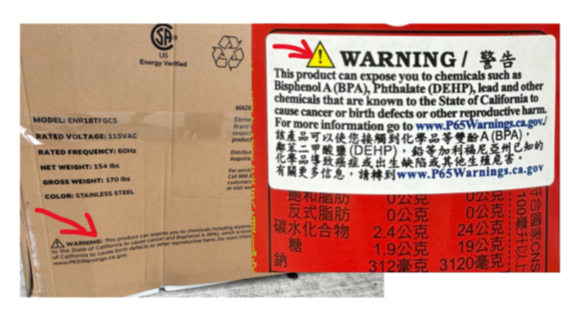
Fig 1. Examples of P65 warning labels can be found on cardboard (left) and Chinese cooking wines (right). The red arrow points to the warning label.
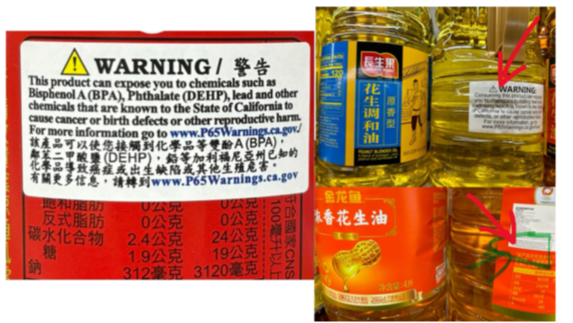
Fig 2. A zoom-in view of the P65 warning label (left). Right: multiple peanut oils in Chinese supermarkets have P65 warning labels, as indicated by the red arrow and/or green circle.
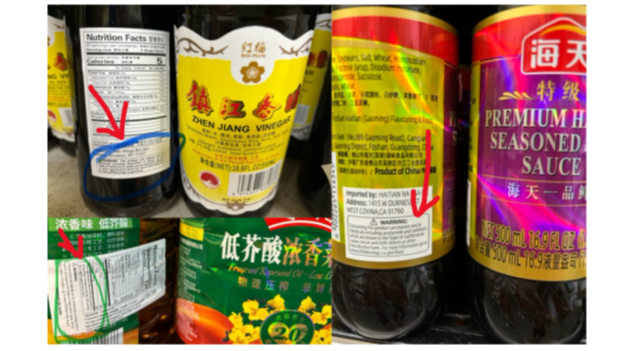
Fig 3. The P65 warning label are found for Chinese vinegar (upper left), various sauces (right) and rapeseed cooking oil (lower left). The red arrow points to the P65 label.
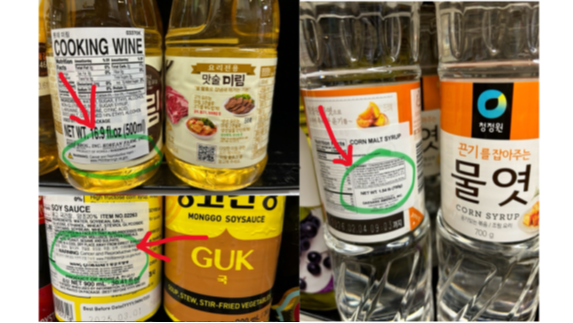
Fig 4. P65 warning labels are found in Korean supermarkets. They are tagged for cooking wine (upper left), soy sauce (lower left), and corn syrup (right). The red arrow points to the P65 label.
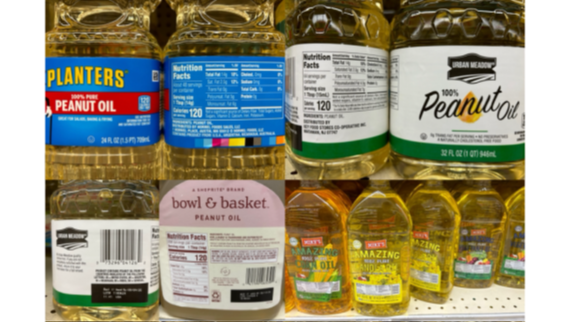
Fig 5. No P65 warning label is found in American supermarkets. National brands (Planters, upper left) or store brands (bowl & basket for the ShopRite chain, lower left) are all free from the P65 label. This is true for peanut oil (upper right) and all other types of cooking oils, vinegar, and sauces (lower right).

